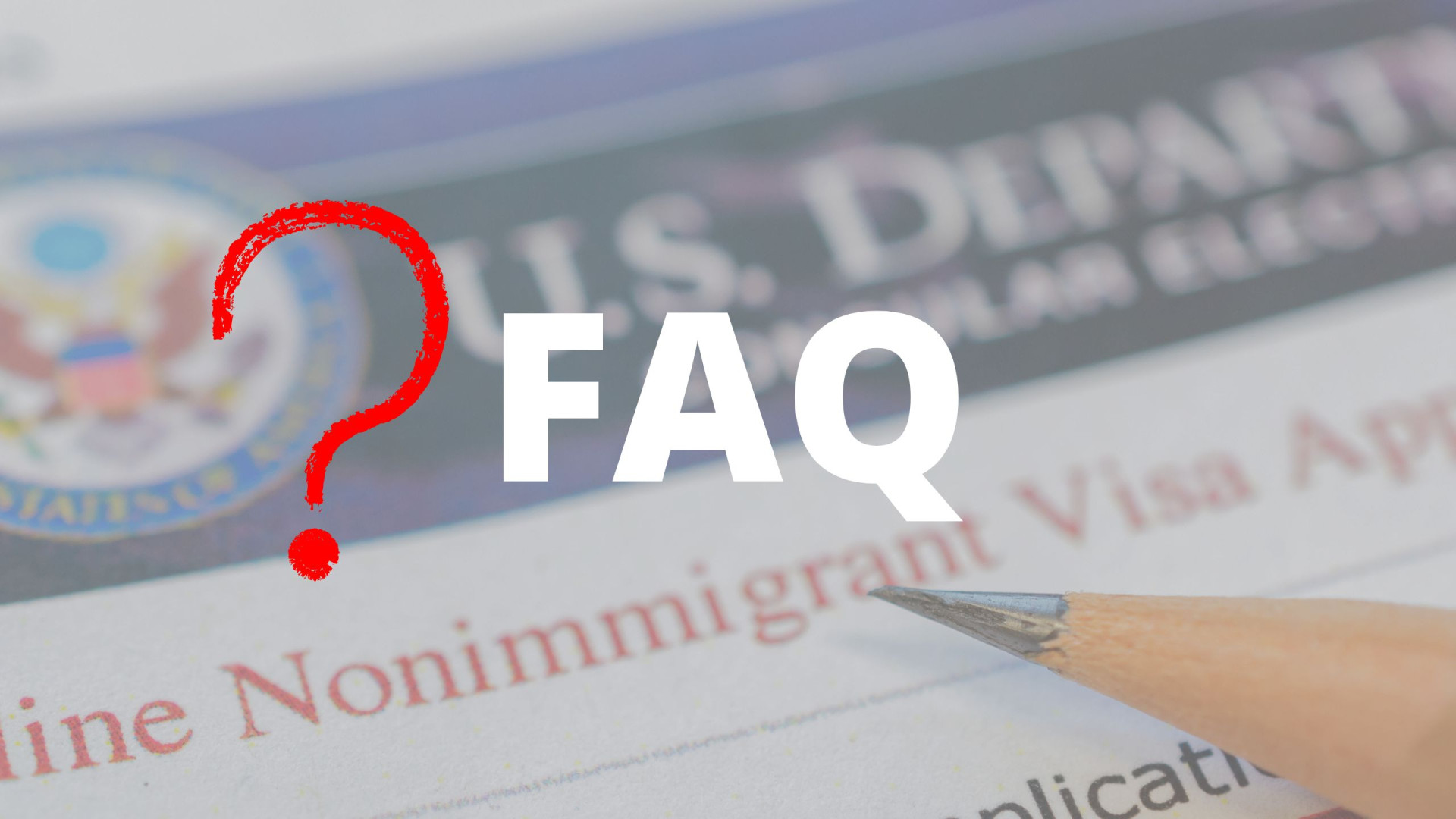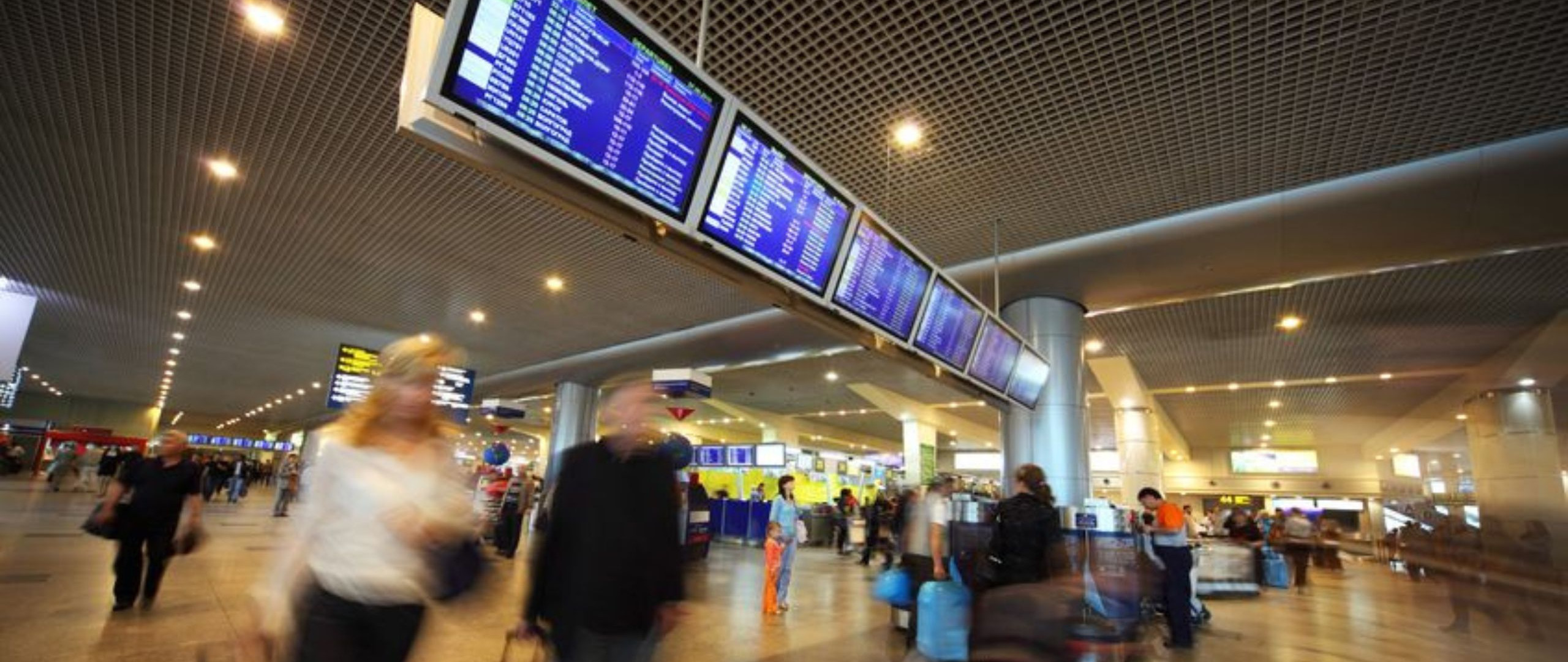Updated on 07.04.2025
Your question: In the media, we are increasingly hearing about problems, baggage checks and deportations at the US border or difficulties with visa applications. What can we do to best prepare our employees for their visa application and entry into the USA?
Share article:

In the media, we are increasingly hearing about problems, baggage checks and deportations at the US border or difficulties with the visa application process, which make us feel seriously worried. What can we do as a company to best prepare our employees for their visa application and entry into the United States?
Since US President Donald Trump took office in January 2025, there have been increasing reports in the media about more intensive controls at US borders, including deportations and detentions. Combined with the new Trump administration's statements on US immigration law, this has understandably led to uncertainty among many travelers.
We do our best to provide an objective overview of the current situation at the US border and the visa application process at US consulates.
First of all, it should be noted that the legal provisions in US immigration law that apply to business travelers, technicians or expats, for example, have not (yet) changed. This applies to both the entry regulations and the application procedures for US visas and ESTA.
Although numerous (possible) tightening measures in this direction were introduced at the beginning of Trump's second term in office by presidential decrees, concrete legal implementation in these areas has not (yet) taken place.
There is concrete speculation about the following measures:
For some weeks now, a possible reintroduction of the visa issuance and entry ban for certain countries and their nationals, which has already been imposed once, has been under discussion. A decision on this matter was expected as early as March 2025. To date, however, there have been no official announcements as to whether there will be a new entry ban at all and which countries could be affected.
There has recently been speculation about a list of more than 40 countries that could be affected by various entry restrictions. These countries are to be divided into three categories:
There is only one European country on this list of countries, which has not yet been officially confirmed: Belarus. It is currently unclear whether and, if so, in what form a visa / entry ban will be implemented for which countries.
This motto was and is a central guiding principle of US President Donald Trump's policy. It states that the interests of the United States should come first in all political, economic and diplomatic decisions.
In the first term of office, this guiding principle – also known as the "Buy American and Hire American" policy – was incorporated into the Foreign Affairs Manual, i.e. the U.S. Department of State's instructions for consular staff. This led to a more intensive review of US work visa application procedures in particular (e.g. E-2 visas) – not only in US consulates worldwide, but also, for example, for work authorization procedures though U.S. Citizenship and Immigration Services (e.g. L-1, H-1B etc.). This resulted in a – albeit not dramatically – higher rejection rate.
So far, the principle revoked by former US President Joe Biden has not yet been re-implemented in immigration regulations – although this is likely to happen in the future.

The main people affected by entry problems are US travelers who operate in a kind of legal grey area. In future, these people should be prepared for "zero tolerance" from the US authorities. This includes, for example
The current reports about the fates of US travelers or people with US visas are still isolated cases, which unfortunately also occurred in the past. What has changed, however, is the quality of the measures, which reflects the above-mentioned 0% tolerance limit of the current US government.
The scenario of weeks of deportation detention, refusal of entry or deportation may understandably increase your uncertainty or that of companies. However, the majority of travelers to the United States will not be affected by this in the future, provided of course that all immigration law requirements are met.
Searches of (hand) luggage or electronic devices (e.g. cell phones or laptops) have been common practice for years. However, this is still subject to certain conditions, for example if there is reasonable suspicion that the person is making false statements or planning illegal / criminal activities.
The same applies to the request for social media information, which is required for ESTA and visa applications. These are used by the US authorities primarily for security checks with regard to possible criminal or illegal activities.
In this context, the increasing number of reports about people who have been refused or revoked US visas, denied entry or deported from the US due to critical comments made on social media is certainly worrying. This is due to an executive order issued by Donald Trump, which states that foreign nationals with a "hostile attitude towards the United States or its culture" or with "suspected sympathies or support of terrorist organizations" are not welcome in the United States.
According to media reports, US Secretary of State Marco Rubio has issued an internal directive to US consulates worldwide, which to date "only" affects F, J and M visa applicants, i.e. students and participants in exchange programs. According to this directive, US consulates will in future have to check certain applicants for these visas more closely with regard to social media information online. One of the main aims of the increased social media checks is to prevent people from entering the US who are suspected of criticizing the United States and / or making pro-Palestinian statements, for example.
For F, J and M visa holders in the US, this may mean that their visas will be revoked. Rubio stated that approximately 300 visas have already been revoked in the United States, many of them from students who participated in campus protests against Israel's military operation in Gaza.
It remains to be seen to what extent these measures could be imposed on applicants for business or work visas (B-1, E-2, L-1 etc.) in the future.
At present, we have not observed any (negative) change in the decision-making process of the US authorities based on the feedback of our clients. However, it is more important than ever to prepare US visa applications carefully and to be prepared for possible changes that may occur at any time.
As a specialized US visa service provider, we naturally keep an eye on all legal developments. However, thanks to the numerous daily reports from our applicants at US consulates around the world, we are able to find out directly when (decision-making) processes change at the US authorities and can react immediately.
So far, the legal provisions in US immigration law have not changed. However, they are being implemented more strictly and consistently. For most travelers, entry into the United States remains unproblematic as long as all information regarding the purpose of stay is truthful and consistent and the required documents are complete.
To avoid potential problems and ensure the safety of your employees, careful preparation is essential: those who adhere to the applicable regulations, are well prepared and rely on professional help in case of uncertainties can still enter the US without major difficulties.
You can take the following measures to prepare your employees for the entry situation in the best possible way:
Date:
Wir und unsere Partner nutzen Cookies, um personenbezogene Daten wie z.B. Browsing-Daten zu speichern und abzurufen, um z.B. Inhalte und Werbung bereitzustellen und zu personalisieren sowie die Verwendung der Website zu analysieren und das Benutzererlebnis zu verbessern. Sie erfahren mehr über die Zwecke, für welche wir und unsere Partner Cookies einsetzen, wenn Sie unten auf den Button „Cookie Einstellungen“ klicken. Hier können sämtliche Einstellungen auch geändert werden. Nachträglich kann man jederzeit seine Cookie-Auswahl überdenken oder seine Einwilligung widerrufen, indem man auf den Link zu den Cookie-Einstellungen im Footer unserer Webseite klickt. Beachten Sie bitte, dass das Blockieren einiger Cookie-Typen unsere Möglichkeiten zur Bereitstellung von auf Ihre Interessen zugeschnittenen Inhalten haben kann oder einige Funktionen der Webseite nur eingeschränkt zur Verfügung stehen.
Durch klicken auf “Alle Cookies akzeptieren” stimmen Sie unserer Nutzung und der Weitergabe Ihrer Daten an unsere Partner zu.